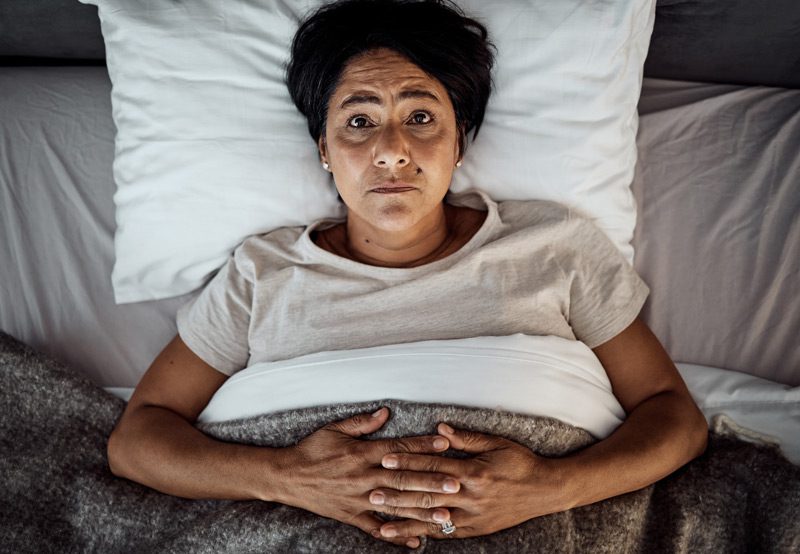

Sleep disturbances, particularly insomnia, are common during menopause due to hormonal fluctuations, including decreased estrogen and progesterone. These hormonal changes can disrupt the body’s sleep-wake cycle, leading to difficulty falling asleep, frequent waking during the night, or waking up too early. Hot flashes and night sweats also contribute to poor sleep quality. Chronic insomnia can lead to daytime fatigue, irritability, and difficulty concentrating, which significantly affects daily life and well-being during menopause.
Causes of Sleep Disturbances
Sleep disturbances during menopause can be caused by:
- Hormonal Changes: Declining estrogen and progesterone levels can interfere with the body’s ability to regulate sleep, causing difficulty falling and staying asleep.
- Hot Flashes and Night Sweats: Sudden increases in body temperature can lead to nighttime awakenings and disruptions in the sleep cycle.
- Stress and Anxiety: Emotional stress related to menopause, life changes, or personal concerns can cause racing thoughts and interfere with the ability to relax and fall asleep.

Diagnosis
A healthcare provider may diagnose sleep disturbances through:
- Symptom History: Discussing the frequency and impact of sleep disturbances, including difficulty falling asleep, staying asleep, or waking too early.
- Physical Examination: Assessing for underlying conditions such as sleep apnea or other medical issues that may contribute to insomnia.
Treatment Options
Treatment for sleep disturbances during menopause may include:
- Hormone Replacement Therapy (HRT): Estrogen or progesterone therapy can help stabilize hormonal fluctuations, reducing the frequency of hot flashes and night sweats that disrupt sleep.
- Medications: Short-term use of sleep aids or medications such as low-dose antidepressants, melatonin, or other sleep medications may be prescribed to help improve sleep quality.
- Lifestyle Changes: Maintaining a consistent sleep schedule, reducing caffeine intake, creating a calming bedtime routine, and optimizing the sleep environment (cool, dark, and quiet) to promote better sleep.
Next Steps
If you are experiencing sleep disturbances, consult with your healthcare provider to identify the underlying causes and explore effective treatment options. Addressing hormonal imbalances, managing stress, and improving sleep habits can significantly enhance sleep quality and overall well-being during menopause. Early intervention can reduce the long-term impact of insomnia on health and daily functioning.
